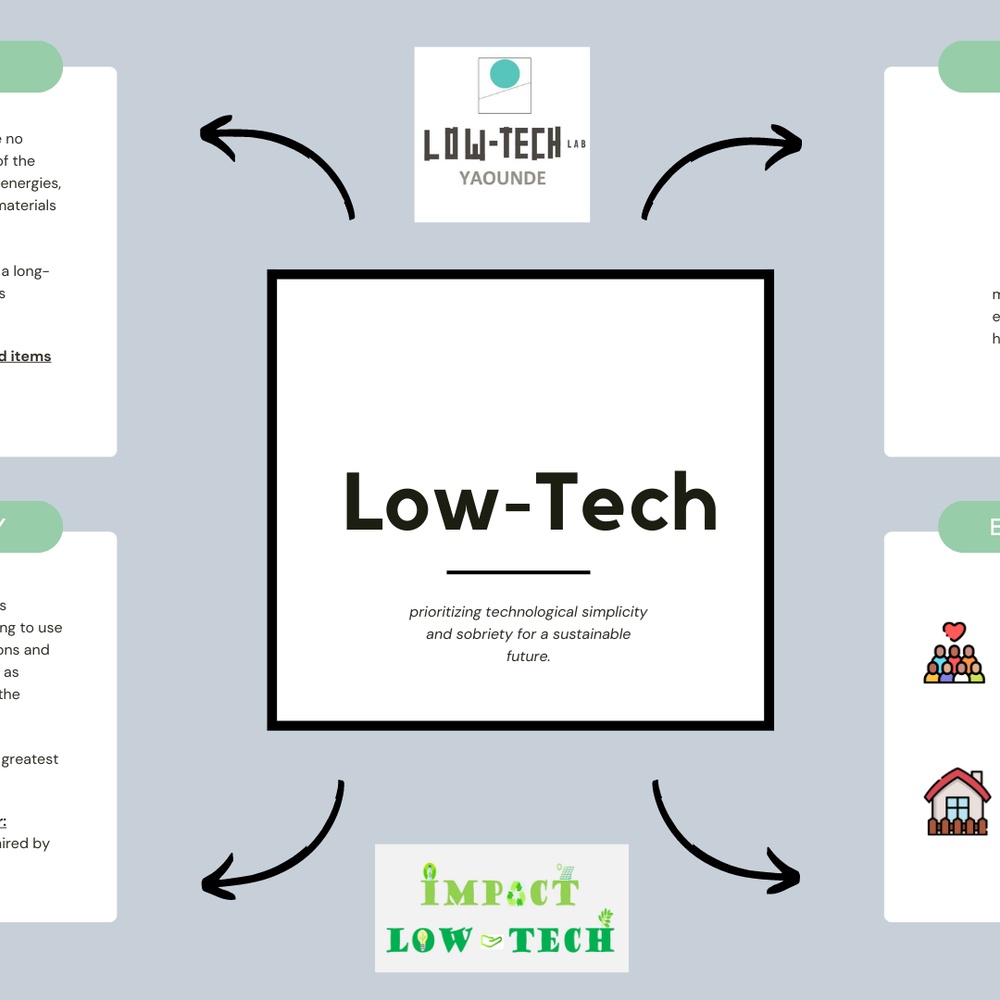
Low-techs for the ecological future
High-tech is not the solution to all the problems, especially in an African context where most high-techs are inaccessible to most people economically. We have to find an equilibrium to be closer technologically to the local population.
In the past, many viewed high-tech solutions as the answer to environmental conservation. Creating everyday items like electric cars, or artificial intelligence monitoring and reducing crucial energy use gave us the idea that the ecological future relied on advanced technologies. But the risks of this approach are becoming clearer every day.
In the vast majority of cases, high technologies pollute as they require the extraction of Earth minerals and other raw materials while destroying natural resources, using fossil fuels and other sources of energy. Many modern technologies use rare earth materials which are not available infinitely. In light of these issues, an interesting alternative is beginning to emerge - low-technology solutions often referred to as low-techs.
The low-tech approaches refer to the design and development of products, services, processes, or systems that aim to maximize their social usefulness while controlling their environmental impact so as not to exceed planetary limits. They encourage sobriety in consumption and production thanks to technologies that are easy to use. It does not mean a rejection of technology, but its fair and sufficient use to reduce environmental impact.
A low-tech product is simple, sober, and locally controllable, if not for manufacturing, then at least for repair and recycling. Accessible in terms of cost and know-how, it provides a sustainable response to current and essential needs in terms of energy, food, health, housing, and transport.
High-tech is not the solution to all the problems, especially in an African context where most high-techs are inaccessible to most people economically. We have to find an equilibrium to be closer technologically to the local population. And low-tech may be the way to do it.
In the African context (whose global socio-economic environment is not necessarily suited to high-tech solutions), low-techs meet basic needs such as access to water, energy, food, and housing. In low-income or rural African households, the installation of a low-tech solar lamp or a ceramic water filter (also a low-tech solution) has the ability to immediately improve the living conditions of a family.
Simpler and greener technology could positively transform impoverished and rural communities in Africa while providing long-term and self-sustainable access to light and electricity. The African continent is well positioned to make the high-tech to low-tech transition.